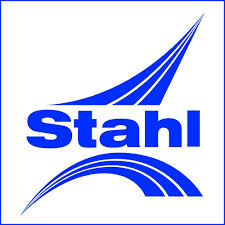 The steel industry in Germany and Europe will continue to face differing international climate policy conditions next year. This would remain the case even if, as currently planned, CO2 emission trading systems were introduced in individual countries and regions outside the European Union. This is the conclusion of a study carried out by IW Consult at the Cologne Institute for Economic Research and commissioned by the German Steel Federation and IG Metall’s Düsseldorf office. The study examines developments regarding emission trading systems and their significance for the steel industry in important competing countries.
The steel industry in Germany and Europe will continue to face differing international climate policy conditions next year. This would remain the case even if, as currently planned, CO2 emission trading systems were introduced in individual countries and regions outside the European Union. This is the conclusion of a study carried out by IW Consult at the Cologne Institute for Economic Research and commissioned by the German Steel Federation and IG Metall’s Düsseldorf office. The study examines developments regarding emission trading systems and their significance for the steel industry in important competing countries.
Together with the European Union, the countries considered – China, India, Japan, Russia, Australia, South Korea and the USA – account for 87 per cent of world steel production. Only Australia and South Korea plan to introduce compulsory nationwide emission trading systems – with free-of-charge allocation of CO2 certificates for their steel industries and considerably lower reduction targets than in the EU. Regional initiatives in the USA do not involve the steel industry. Participation is voluntary in Japan. In other countries, such as Russia, there are no signs of any developments regarding emission trading systems. Pilot projects in China and Brazil are still in their initial phases.
“The study proves that free allocation based on technically feasible benchmarks remains necessary in Europe,” Hans Jürgen Kerkhoff, President of the Düsseldorf-based German Steel Federation, comments on the results. “Otherwise the steel industry risks losing its competitiveness against rivals facing no costs resulting from emission trading and CO2. We are still very far from identical international competitive conditions regarding climate protection.”
“The global climate would not be helped if emission trading led to a relocation of steel production abroad and jobs in Germany would be threatened,” worries Hannelore Elze, Manager of the Düsseldorf branch of IG Metall. “Employees in the steel sector are also working to reduce CO2 emissions, and are committed to worldwide uniform climate protection regulations.”
In the European CO2 emission trading system certificates are allocated free-of-charge to energy-intensive sectors that face international competition, but allocation is based on ambitious benchmarks. Certificates are free in order to prevent the relocation of production and jobs being triggered by one-sided cost increases not incurred by countries outside the European Union. The list of affected sectors, the so-called Carbon Leakage List, is to be reexamined by 31 December 2014 and redefined for a period of five years. The EU Commission recently started a consultation on this matter.
The German Steel Federation and the Düsseldorf office of IG Metall demand that the EU Commission uses this consultation to recognise that international conditions regarding climate protection have not changed in recent years, and that the steel sector still requires allocation that is free-of-charge.
